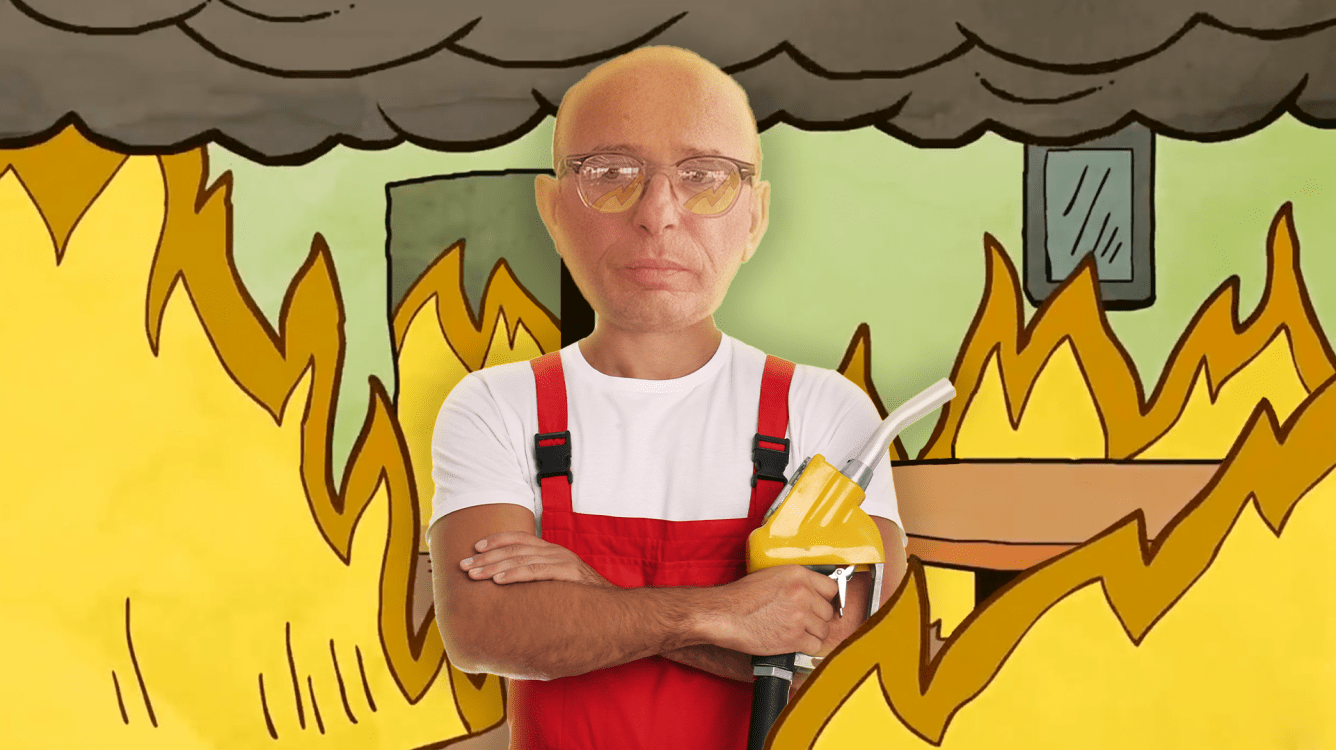
How To Put Out A Fire With Gasoline
The title of this article probably sounds absolutely crazy to you since gasoline makes fires stronger. Yes, in real life it is absolutely impossible to put out a fire with gasoline, but here we are talking about the wonderful world of chess, where impossible things become reality.
First, let me tell you a brief story from my early childhood. All of the kids in my chess section of the Pioneer Palace were mostly near beginner level, so one of our favorite strategies was a pawn storm.
What can be simpler than that? Just push your pawns, break the pawn shield in front of the opponent's king, and checkmate them! Some of the kids tried to stop the pawn storm by pushing their own pawns forward in front of their kings. Of course, in most cases, such a strategy only helped their opponent's plan. In such situations, our coach used to say: "You are trying to put out the fire with gasoline!"
Fast forward some 6-7 years and as one of the top Soviet juniors, I was invited to attend the famous Botvinnik-Kasparov school. There, two great world champions analyzed our games and gave their recommendations on how to improve our chess. I remember one of the kids was showing his game and a well-known theoretical position appeared on a demo board:
This is one of the main appeals of the King's Indian Defense: in many lines, Black gets a direct attack against the white king. Here the coming pawn storm can spell a complete disaster for White. The following modern classic is a good example:
Back to my story. I don't remember if the kid who was showing his game was checkmated in a similar way or if he won his game, but one thing that I do remember is that his king was in severe danger. So, when GM Mikhail Botvinnik said that in order to avoid this danger White could have played 11.g4, I thought that I misheard him. Wasn't that exactly what our Pioneer Palace coach called "putting out a fire with gasoline?"
But Botvinnik explained that this is an old idea of GM Samuel Reshevsky and showed some possible variations. It is a shame that Botvinnik didn't mention any of Reshevsky's games played with this idea. I cannot find any of them in a database, so I assume that Reshevsky probably played it in one of those semi-closed Soviet training tournaments at the end of the 1930s, where Botvinnik saw it.

Or maybe it is the same story as with the notorious Maroczy Bind, where the famous Hungarian grandmaster never played it himself but just analyzed it, which was enough for the system to be named after him. Who knows? Anyway, after White plays Reshevsky's g2-g4 idea in many cases he can either completely lock the kingside, or even turn the table and start his own attack there, as in the following marvelous game:
These days the g2-g4 in the King's Indian defense can be played with a different idea, which also stops Black's kingside attack. After Black starts his attack by pushing f7-f5, White simply trades the pawns and uses the e4- and e6-squares to place his knight. In this case, too, it is very common that White turns the table and starts his own attack on the kingside. The following game is a textbook example of this strategy by a very young GM Vladimir Kramnik:
While White's strategy sounds quite simple, in reality, it is anything but! The following game from the recent FIDE Grand Prix illustrates this point quite well. Even one of the world's best players misplayed this system in a spectacular fashion.
In conclusion, I would like to emphasize again that this idea of pushing forward pawns in front of your king in order to prevent your opponent's attack is a major exception from the rules and you should use it very carefully. Nevertheless, this is a chess gadget that any player should have in their toolbox.



